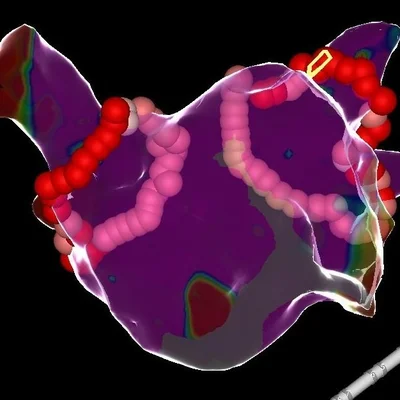Atrial Fibrillation (AF)
Atrial Fibrillation, commonly referred to as AF or AFib, is the most prevalent type of irregular heartbeat, characterized by the rapid and uncoordinated beating of the heart's upper chambers, known as the atria.
Understanding AF
- What is it? AF occurs when the atria quiver instead of beating effectively, leading to an irregular and often rapid heartbeat.
- Symptoms: Symptoms can vary and might include palpitations, fatigue, shortness of breath, and dizziness. Some individuals may not experience any symptoms.
- Causes: AF can result from various factors including high blood pressure, heart valve disease, and lifestyle factors such as excessive alcohol use.
- Diagnosis: AF is diagnosed through an electrocardiogram (ECG) or continuous monitoring devices like Holter monitors or implantable loop recorders.
Treatment Options
- Lifestyle Changes: Modifications like maintaining a healthy weight, limiting alcohol and caffeine intake, and regular physical activity are crucial.
- Medications: Includes drugs to control heart rate, maintain normal rhythm, and prevent blood clots.
- Catheter Ablation: A minimally invasive procedure that targets and destroys the heart tissue causing AF.
- Cardioversion: A procedure that uses electrical shocks or medication to restore normal heart rhythm.
Managing AF
Effective management involves a combination of treatments tailored to the individual's needs and regular follow-up with healthcare providers to monitor the condition and adjust treatments as needed.
Conclusion
AF is a complex condition that requires comprehensive treatment and management strategies to prevent complications and improve quality of life.
